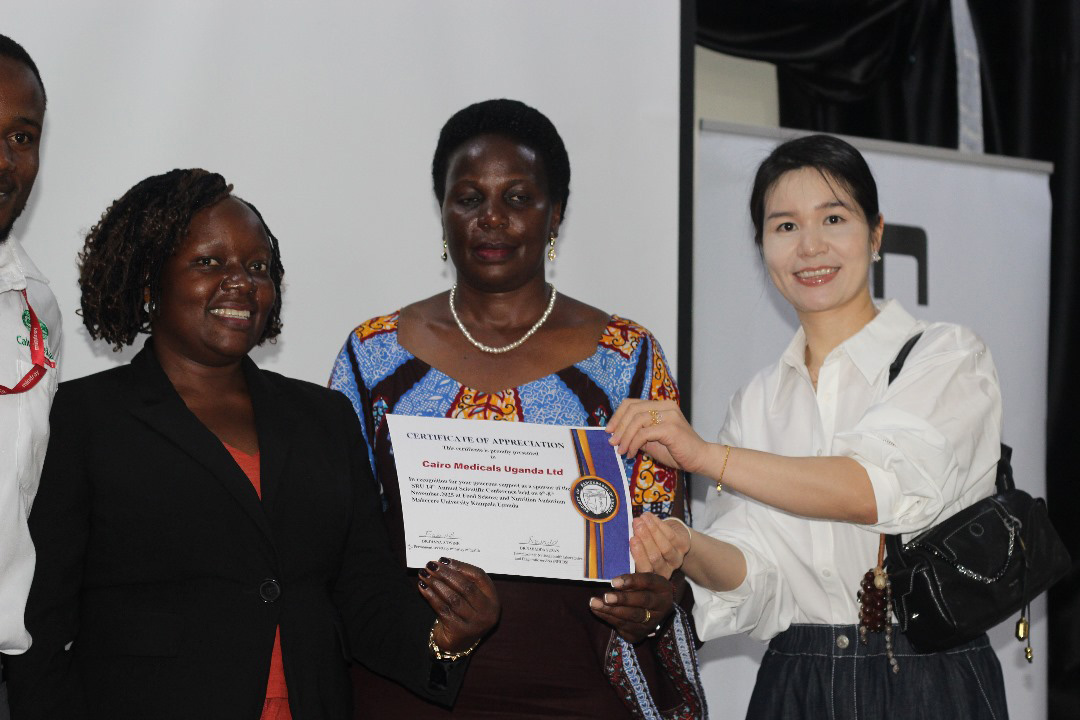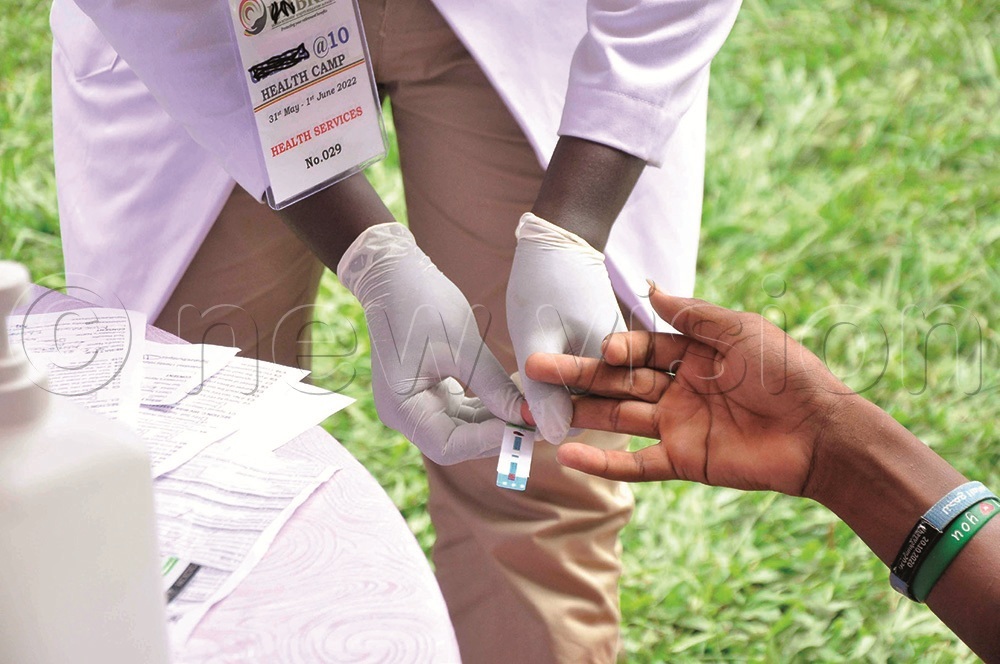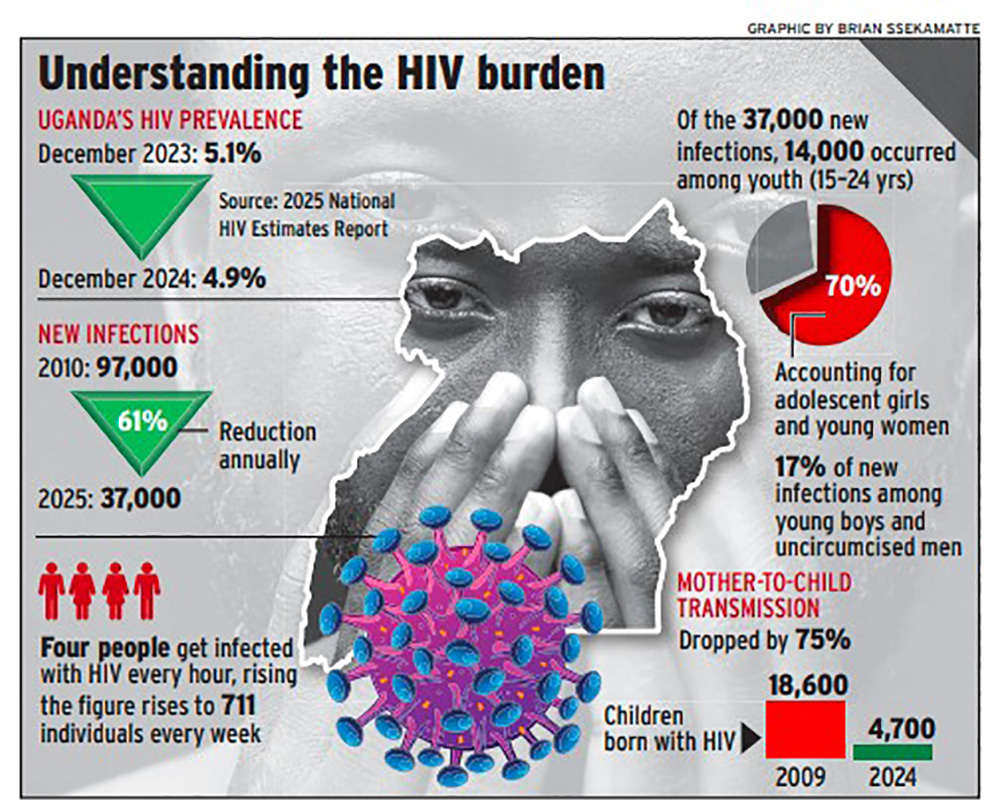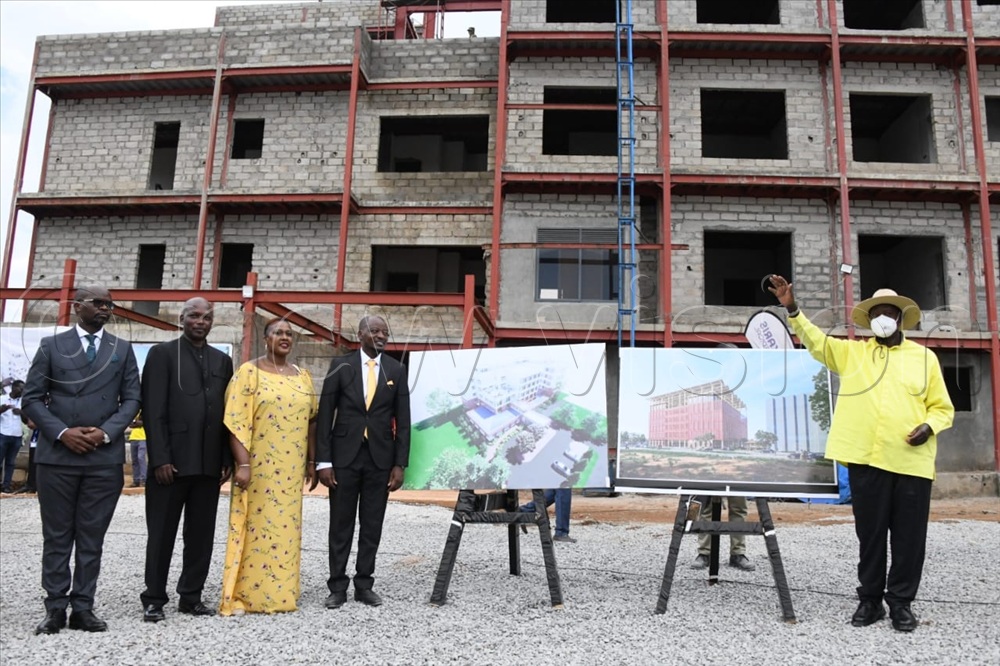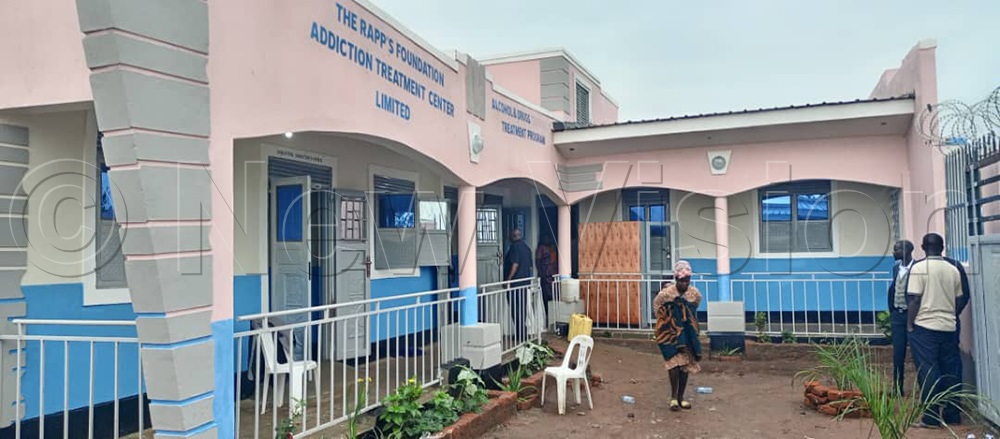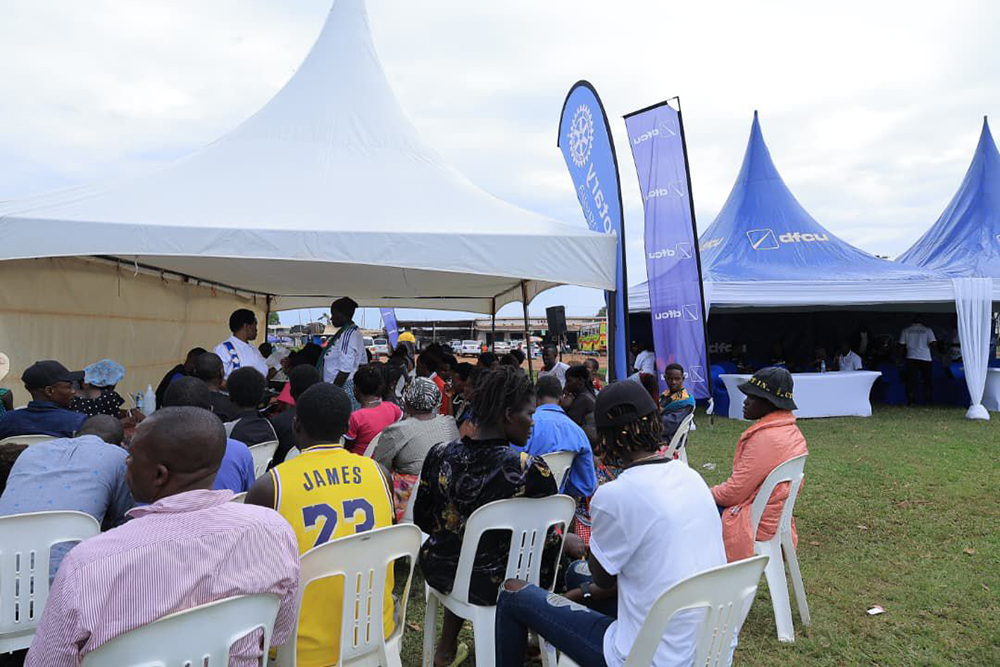Suzan Nabadda, the commissioner for national health laboratory and diagnostic services, handing over certificates of appreciation to radiographers. (Photo by Richard Ategeka)
___________________
Health experts have warned Ugandans to be cautious of fake scan operators using counterfeit diagnostic machines to exploit patients and endanger lives.
The warning came during the World Radiography Day 2025 celebrations at Makerere University on November 8, 2025, where health experts and regulators called for urgent public awareness and stronger enforcement against quack practitioners.
The event, which attracted over 200 radiographers, educators, and students from various institutions, was held under the theme “Medical Imaging Professionals: Partnering for a Healthier Future.”
Preying on Patients
Prof. John Charles Okiria, chairperson of the Allied Health Professionals Council (AHPC), said several people are running roadside “clinics” and small offices in arcades using bogus devices that falsely claim to diagnose multiple diseases.
“We have people sitting in small rooms with computers claiming their machines can detect 60 diseases at once,” he explained. “Those are quacks. There’s no such medical device, and health is not a gamble.”
Okiria warned that such unqualified operators not only endanger patients but also erode public trust in the medical profession.
“These devices are merely preloaded apps with no medical value,” he added. “People are being exploited and extorted of millions of shillings.”
He said the Council has intensified inspections, licensing checks, and continuous professional development (CPD) programmes for radiographers across the country.
“We are reminding every practitioner that patient care is a calling,” he emphasised. “Only qualified, licensed radiographers should handle imaging equipment.”
Government reforms underway
Through Suzan Nabadda, the commissioner for national health laboratory and diagnostic services, Diana Atwine, permanent secretary at the Ministry of Health, said the government is committed to transforming diagnostic services through modern technology, better training, and ethical practice.
“Technology alone cannot deliver quality care,” she said. “We need committed professionals who translate innovation into better patient outcomes.”
Atwine added that the ministry is adopting artificial intelligence (AI) and teleradiology to support hospitals in remote regions.
“Radiologists can now interpret scans remotely, ensuring that even patients in rural hospitals receive timely and accurate results,” she noted.
Nabadda, in her remarks, said the government has already restructured the diagnostic workforce, deploying radiologists at referral hospitals and radiographers at district and health centre levels.
However, she said, limited funding continues to delay the absorption of trained professionals into government service.
“The structure exists, but we still need more budgetary support to fill the positions,” she said.
Radiographers call for support
Micah Muhangi, president of the Society of Radiographers of Uganda (SRU), said that although Uganda has trained more than 1,000 radiographers, the slow absorption into government service has created a gap that allows unqualified individuals to thrive.
“We need government to employ more radiographers so people don’t turn to fake operators,” he said. “Our profession is ready to serve the nation.”
Reagan Ampaire, a radiography student at Ernest Cook University, said the shortage of training facilities and clinical placements limits students’ exposure to modern imaging technologies.
“There are many students but few practice sites and resources,” he said. “We need more equipment and mentorship opportunities to become fully skilled professionals.”
About the celebration
World Radiography Day, observed every November 8, commemorates the 1895 discovery of X-rays by Wilhelm Roentgen.
This year’s international theme, “Empowering Healthcare through Imaging Excellence,” highlighted the vital role of radiographers in accurate diagnosis and quality patient care.
As Uganda continues to modernise its health services, experts say the fight against fake scan operators remains essential to safeguarding lives and restoring trust in diagnostic care.


 Richard Ategeka
Richard Ategeka 